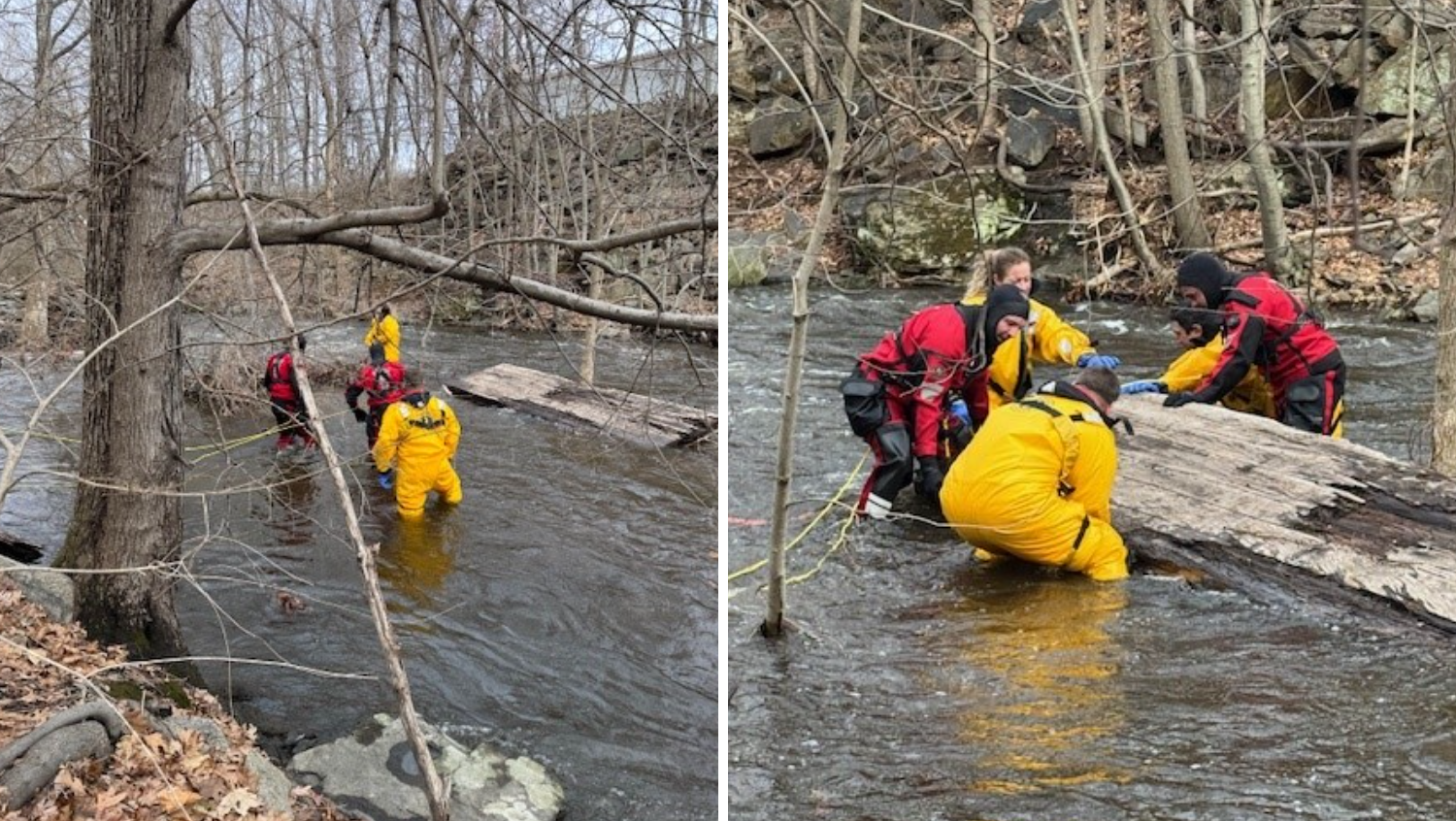New Haven city leaders announced late Wednesday that an eviction at Tent City along the West River wouldn’t happen that day.
Earlier in the morning, a crowd of supporters gathered at the site as an eviction deadline for 1 p.m. approached.
Advocate Billy Bromage used a loudspeaker to address the crowd.
“There’s two proposals. One is to have people stay here and keep an eye on the camp and support those that are still here. We also need a few people to help move people who may want to relocate at this point who have a place to go,” Bromage said.
Get top local stories in Connecticut delivered to you every morning. Sign up for NBC Connecticut's News Headlines newsletter.
The crowd was ready to protect those of the seven residents who wanted to stay. City officials have offered them a spot at the Columbus House Shelter. A man named Eric told NBC Connecticut that he was released from jail several months ago and says he has PTSD. A shelter wouldn’t work for him.
“I can’t do it anymore with the bunks and being in that situation,” he said. “People got mental disorders and I feel threatened. I’m better off just being by myself.”
Todd and Suki Godek shared the same thoughts. And the couple added that the shelters aren’t co-ed, and they’d have to give up their belongings to spend just nights at the shelter.
Local
“There’s the lack of privacy, there’s a lot of different people with mental health issues in a small space that it’s actually worse than if you were living on the street,” Suki said.
She helped organize a cleanup of the site when inspectors first made a visit and cited waste, an unregulated structure for a shower, and propane heaters. All of them are hazards according to the mayor.
“When the city had come down, they said we had met their demands and that we were fine and then two days later we were blindsided later by ‘remove your property or go to jail’ basically,” Suki said.
The original clean up included getting rid of heaters Todd Godek says they bought that were made specifically for camping. They’ve been without heat for two weeks.
“The heaters we had we bought at Walmart so they were made for camping. So, they were abiding by all the rules and laws. We bought them at stores,” Godek said.
The two have multiple part time jobs and despite not wanting to go to a shelter, they’ve made an attempt to find a home. Todd says they went through an entire process of applying for a housing voucher and were denied. He adds it’s hard to trust the offers for help now, especially when people he says arrived here after them got vouchers before them.
“We’re showing people that we’re not just low lifes. You know what I mean? We’re trying to work, we’re trying to better ourselves, we’re trying to get a house,” he said.
Mayor Justin Elicker says they are trying hard to get residents connected with services. It can include education, mental health assistance, help getting vital records and documents, and housing.
“This is a very challenging issue because unhoused in New Haven are some of the most vulnerable people in our community,” Elicker said. “And so our team has been working very, very hard to help the individuals staying at the encampment and other individuals in the city.”
He adds the city puts in $1.4 million dollars into the budget to fund homeless programs and services, like warming shelters, places to do laundry and get a shower, and the mobile “Power in the Shower” units during the summer.
The city just announced a nearly $5 million dollar grant to also help fund those programs, and to build affordable housing and a non-congregate shelter that offer more privacy the Godeks are looking for.
“We can’t do it alone this is a Connecticut issue, and we need to see more movement on the suburbs side as well to support more options for affordable housing so that we can provide more places for people that they can actually afford,” Elicker said.
Outreach worker Shaunette James said by the late afternoon she was able to connect with most residents to begin an assessment of their needs. She also said the programs some people may have used in the past for housing or food stamps may no longer exist.
“What I want to tell folks is that life is about giving second chances and that also means to providers,” James said. “It didn’t work for one provider, give it another chance with another provider so that we can work and get you to where you really want to get to.”
James says she was able to help the resident who’s lived in Tent City the longest get an apartment. They were able to move from the encampment to an apartment.
“He gave me a fist bump and said, ‘that’s what I’m talking about!’”
As the residents began making decisions, James said the city has secured storage space for their belongings if they chose to go to a shelter. It would be the first step in a new direction.
Todd Godek said the and his wife would leave if they had to. His boss was on the way with a truck.
“Whatever we can fit in the truck we’ll take, just to get it out of here,” Godek said. “If you gave us some time, if they would have gave us another week or so things would have been a lot easier.”



